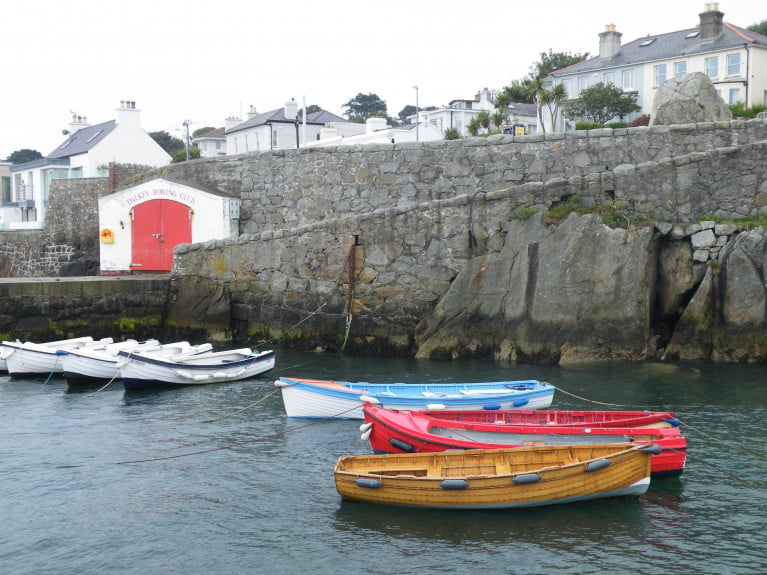Displaying items by tag: Dalkey Island: No ferry
Dalkey Island Ferry Not Operating Due to Collapse at Cliff-Face Within South Dublin Bay Harbour
The popular Dalkey Island seasonal ferryboat has stopped service due to a partial collapse of a cliff-face underneath a footpath leading to the pier at Coliemore Harbour, Co. Dublin, writes Jehan Ashmore.
The ferry operator, Ken Cunningham said "unfortunately due to an incident in the harbour I cannot operate the ferry this weekend, its under investigation right now with DLRCoCo because part of the wall fell out where the walkway is and it is unsafe for anyone too walk down"
He added "I'm sorry for any inconvenience caused to anyone who was planning a trip over to the island this weekend. Hopefully, I won't be out of action for too long".
Directly below the footpath wall that provides access from Coliemore Road, is where the jagged chunk of cliff-face sheared off below into the harbour which during medieval times acted as the Port of Dublin. The only commercial operation using the beautiful stone-cut harbour now is the 'Ken The Ferryman' service until this week's rock-fall incident (see: facebook's close up photo).
 A close up of the affected cliff-face at Coliemore Harbour
A close up of the affected cliff-face at Coliemore Harbour
The stretch of water across Dalkey Sound is a mere 300m between the mainland harbour and the landing slipway on the island which together in 2014 were upgraded by Dun Laoghaire-Rathdown County Council (DLRCoCo). For more details of these works (see p.23) of 'Maritime' Dalkey coverage in the Dalkey Community Council newsletters, also features the resumption of the ferry service after three years absence.
Due to Covid-19 restrictions the service was delayed from beginning earlier this season using instead of the Lilly Rose a new larger replacement passenger boat, Gemma but now currently off-service due to cliff rock-fall.
The ferryboat service at Coliemore Harbour is located less than a mile from Dalkey which is a designated 'Heritage Town' with its scenic coastline along the Dublin Riviera.
It is also along the harbour's footpath wall where local youths have been gathering and jumping off directly into the water below, however the fallen rock is now in this same area posing a danger to such activity. In addition the rock is a danger to nearby timber and fibreglass built moored boats.
DLRCoCo has blocked of Coliemore Harbour's walkway leading to the ferry pier with signs stating no unauthorised access and danger warnings of 'falling rocks' and 'closed due to repair works needed'. Access remains open but only to the slip and adjoining second pier with anglers given the mackeral season is underway.
The stretch of water between Coliemore and the island is named Dalkey Sound which is a mere 300m wide and is linked by the traditional ferryboat service.
In addition the affected walkway has also led to no access to Dalkey Rowing Club's premises and so coastal rowing of 'skiff' boats have been cancelled.
Ken the Ferryman is the sole operator providing exclusively the Department of Marine inspected and licensed passenger-boat service off the south Dublin suburb which has become more famous as it is host to the annual Dalkey Book Festival. This year's 10th festival, however was postponed due to Covid-19 public health restrictions.
























































